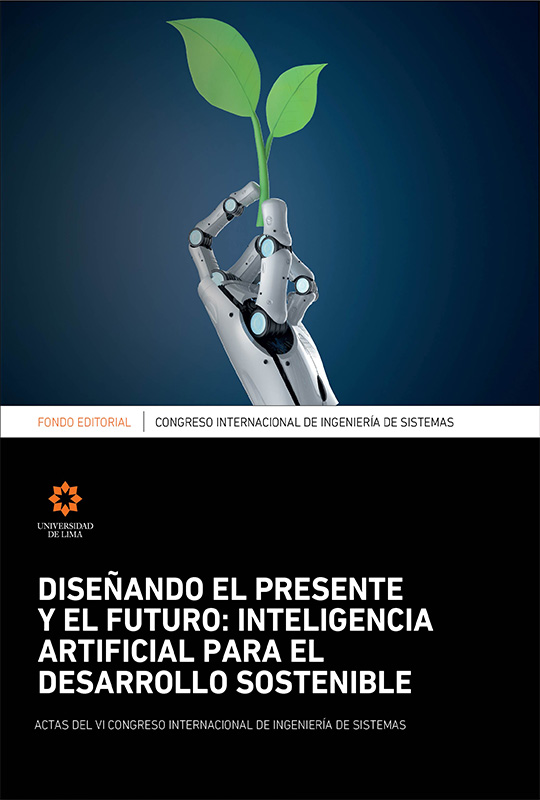Sostenibilidad y sistemas basados en inteligencia artificial
DOI:
https://doi.org/10.26439/ciis2023.7077Palabras clave:
inteligencia artificial, sostenibilidad del software, sistemas de IAResumen
La inteligencia artificial (IA) ha evolucionado con avances como los lenguajes de alto nivel de programación (Python, por ejemplo) y las redes neuronales profundas o redes de aprendizaje profundo. Estos avances han impulsado el auge de la IA, con desarrollos como XAI, Small Data e ImageNet. La IA generativa está cambiando la economía y se espera que tenga un impacto significativo en áreas como la creación de contenidos, el desarrollo de software y el marketing. La Comisión Europea propone una regulación de la IA basada en un enfoque de riesgo, con diferentes niveles de riesgo y requisitos según la categoría de IA. La sostenibilidad del software es multidimensional, pues abarca aspectos técnicos, económicos, ambientales y sociales. La explicabilidad y transparencia en los modelos de IA son cruciales para garantizar la responsabilidad y la confianza en su uso. La integración de sistemas de IA con sistemas y procesos heredados implica consideraciones técnicas y económicas; puede generar beneficios, como la optimización de procesos, pero también requiere inversiones significativas.
Descargas
Referencias
Bank of America Corporation (2023). Artificial intelligence: a real game changer. https://business.bofa.com/en-us/content/economic-impact-of-ai.html
CB Insights (2023). AI 100: The most promising artificial intelligence startups of 2023. https://www.cbinsights.com/research/artificial-intelligence-top-startups-2023/
Clarke, R. (2019). Regulatory alternatives for AI. Computer Law & Security Review, 35(4), 398-409. https://doi.org/10.1016/j.clsr.2019.04.008
Condori-Fernández, N. & Lago, P. (2018). Characterizing the contribution of quality requirements to software sustainability. Journal of Systems and Software, 137, 289-305. https://doi.org/10.1016/j.jss.2017.12.005
European Parliamentary Research Service (2023). Artificial intelligence act. https://www.europarl.europa.eu/RegData/etudes/BRIE/2021/698792/EPRS_BRI(2021)698792_EN.pdf
Franch, X., Jedlitschka, A., & Martínez-Fernández, S. (2023). A requirements engineering perspective to AI-based systems development: a vision paper. En A. Ferrari & B. Penzenstadler (Eds.), Requirements engineering: foundation for software quality (pp. 223-232). Springer. https://doi.org/10.1007/978-3-031-29786-1_15
Martínez-Fernández, S., Franch, X., & Durán, F. (2023). Towards green AI-based software systems: an architecture-centric approach (GAISSA). En 49th Euromicro Conference on Software Engineering and Advanced Applications - SEAA (pp. 432-439). https://doi.org/10.1109/SEAA60479.2023.00071
OECD. (2023). Recommendation of the Council on artificial intelligence. OECD Legal Instruments: https://legalinstruments.oecd.org/en/instruments/OECD-LEGAL-0449#mainText
Raschka, S., Patterson, J. & Nolet, C. (2020). Machine learning in Python: main developments and technology trends in data science, machine learning, and artificial intelligence. Information, 11(4), 193. https://doi.org/10.3390/info11040193
Rolf, B., Jackson, I., Müller, M., Lang, S., Reggelin, T. & Ivanov, D. (2023). A review on reinforcement learning algorithms and applications in supply chain management. International Journal of Production Research, 61(20), 7151-7179. DOI: 10.1080/00207543.2022.2140221
Xu, F., Uszkoreit, H., Du, Y., Fan, W., Zhao, D., & Zhu, J. (2019). Explainable AI: a brief survey on history, research areas, approaches and challenges. En J. Tang, M.Y. Kan, D. Zhao, S. Li & H. Zan (Eds.), Natural language processing and chinese computing (pp. 563-574). Springer. https://doi.org/10.1007/978-3-030-32236-6_51






